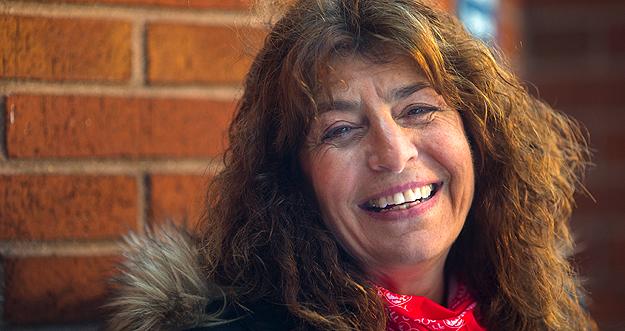People power and social change

We see it happen throughout history. When people have had enough, it takes only a spark to ignite the flame of mass resistance. The Revolutionary War of our United States was brewing over time—fueled by rebel organizing activities—but it was the tea tax and the Boston revolt that set a lot of things in motion, followed by several other events in rapid succession. Civil Rights legislation in the 1960s only occurred after years and years of struggle, sparked by some publicized brutal events in the South and massive demonstrations in Washington, DC.
National Health Insurance (and even a national health system) was supported by most Americans and presidents throughout the 19th century but was cleverly discarded, first by the American Medical Association (AMA) in the 1920s and then by the newly empowered insurance industry in the 1950s in partnership with the AMA.
The power of organizing
Ironically, it was the growing national consciousness nourished by the civil rights movement that led to the crushing defeat of Barry Goldwater in 1964, forcing the wealthy anti-worker right wing of the nation to step back and lick its wounds. This moment in time created an environment for the passage of a slew of progressive legislation in that decade, including the compromise national insurance programs Medicare and Medicaid.
Teachers unions in West Virginia—a “right to work” red state—responded dramatically to inadequate funding and additional cuts last year. Fed up with the lack of commitment and progress in negotiations over time, a statewide school employee strike was called—with 100% participation. Lasting little more than a week, it brought the state government to its knees and resulted in a variety of victories for the state’s students and teachers.
The recent general strike in Puerto Rico, which resulted in the ousting of the governor, was unprecedented in the history of the United States. It was sparked by scandalous emails, but had been building over many years of widespread victimization, corruption and the lack of autonomy of a nation. However, the revolt wouldn’t have happened were it not for grassroots organizing over time.
Registered nurses in the second half of the 20th century were subjected to draconian rules, horribly oppressive working conditions, abysmal salaries and received little or no benefits or pensions. This changed dramatically as a result of massive unionization drives and, significantly, strikes, wildcats, sick-outs, boycotts and job actions of the 1970s and 1980s. Salaries quadrupled, serious benefit plans were initiated, working conditions improved and professional autonomy became the “sell” to recruit new nurses who were essential to the growth of the powerful hospital industry.
Millennial nurses often hear baby boomer RNs talk about the “Golden Years” of nursing back then. This wasn’t a result of hospital CEO compassion for our profession, although the community hospital environment, even in some academic facilities, gave the illusion of “family.” The improved quality of nurses’ lives was the direct result of nurses organizing, taking action and demanding their rights.
Nursing today
That autonomy is under attack—and has been over the last 10 or 20 years, as the extraordinary control over healthcare by the insurance industry, rather than by health professionals and patients, has grown. This takeover has resulted in more redundancy than ever (think EMR), factory-like conditions in hospitals (doing more with less), de-professionalization and infantilization of the profession (scripts, rote protocols, near obliteration of in-person in-service programs), and the widescale proliferation of sicker, needier patients under our care without an increase in commensurate staffing, support or resources to care for them.
Healthcare today
People with serious illnesses continue to face bankruptcy due to costs. Consider the recent murder-suicide of an elderly couple in Washington State, who chose this route, faced with bills they could not pay. People say, “How can this happen in America?”
Mergers, acquisitions and hospital closings continue to make our workplaces look more like Walmart than facilities of loving care. Privatization and contracting out—“giving away our practice”—attempt to destroy union density and the benefits of caregivers across the spectrum.
Rational proposals for end-of-life care rarely get the attention they deserve, resulting in the most costly component of healthcare that rarely improves the quality of life.
The pharmaceutical industry’s (Big Pharma) unregulated power has not only escalated costs beyond the realm of imagination (think insulin, EpiPens, etc.), but clearly played a role in the current opioid epidemic affecting communities across the United States.
And many of us, even those with “good” insurance plans, find that over time we pay more, get less, wait longer and become more and more frustrated with the healthcare bureaucracy that we have no control over.
The future…
Scientists agree that there’s an existential crisis facing our planet: the specter of intense climate change that threatens every one of us. Nurses see the results of such changes as we care for victims of hurricanes, floods, heat waves, droughts, forest fires, and their secondary impacts: vector-borne illnesses, mass migration and homelessness, mental illness such as depression, PTSD and suicides, stress-induced cardiac complications, carcinogens and mold-related respiratory diseases, family disintegration and more.
Deregulation, anti-union legislation, the proliferation of low-paying dangerous jobs, increased corporatization of public services, continued use of fossil fuel for energy needs, scapegoating those with fewer options to survive—these are not answers to our problems. They worsen the situation and distract us from the need to reinvigorate our country to tackle the challenges we face as a society.
Nurses have a unique role to play in not only caring for our patients day to day, but in our political involvement in educating the public and ourselves about the need to come together to confront these challenges. We need to nurture our natural inclination as humanitarian caregivers and healers to be part of this movement and not allow our employers—or government officials—to destroy that essential component of who we are. We need to reject the notion that positive change is not possible and instead, be the change we want to see.